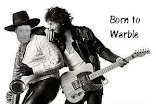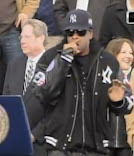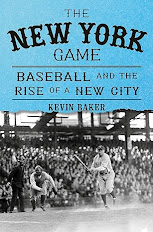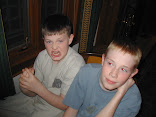All right, with pitchers and catchers in the wings, time to put this Hot Stove favorite to rest. (It IS a favorite, right?)
Here, if you'll recall, is my list of the Top Ten Professional Sports Dynasties in North American History:
10. Chicago Cubs, 1906-1910.
9. Boston Red Sox, 1912-1918.
8. Los Angeles Lakers, 1980-1991.
7. New York Yankees, 1994-2003.
6. Green Bay Packers, 1960-1967.
5. Chicago Bulls, 1988-1998.
4. Montreal Canadiens, 1955-1979.
3. Boston Celtics, 1956-1969.
2. New England Patriots, 2001-2020.
1. New York Yankees, 1920-1964.
Here were the top two runners-up:
New York Islanders, 1975-1984.
San Francisco 49ers, 1981-1998.
And the hockey runners-up:
Toronto Maple Leafs, 1941-1951.
Toronto Maple Leafs, 1961-1967.
Detroit Red Wings, 1948-1956.
Detroit Red Wings, 1994-2009.
Edmonton Oilers, 1982-1990.
New Jersey Devils, 1993-2003.
And the basketball runners-up:
Minneapolis Lakers, 1948-1954.
Los Angeles Lakers, 1999-2010.
San Antonio Spurs, 1998-2016.
Golden State Warriors, 2014-2019.
Boston Celtics, 1979-1992.
LeBron James, 2003- .
And the football runners-up:
Green Bay Packers, 1929-1931.
New York Giants, 1933-1946.
New York Giants, 1956-1963.
Chicago Bears, 1932-1946.
Cleveland Browns, 1946-1957.
Dallas Cowboys, 1966-1983.
Dallas Cowboys, 1991-1996.
Miami Dolphins, 1970-1975.
Pittsburgh Steelers, 1972-1979.
Oakland-Los Angeles Raiders, 1967-1985.
So, what else could follow, but...your baseball honorable mentions!
Athletics.
Philadelphia Athletics, 1910-1914.
A great "deadball" team, featuring one of the best starting staffs ever—Chief Bender, Jack Coombs, Gettysburg Eddie Plank, Cy Morgan, Sailor Bob Shawkey, Herb "The Knight of Kensett Square" Pennock, Bullet Joe Bush, and Boardwalk Eddie Brown (love these old nicknames)—along with the fabulous, "$100,000 Infield"—Stuffy McInnis, Columbia Eddie Collins, Jack Barry, and Home Run Baker.
They won over 100 games twice, over 90 games all five years, and took 3 World Series (including one that ended the great Cubs dynasty). They might have lasted for years more—but the problem was the same old, same old for the underfinanced owner/manager, Connie Mack: not enough money. With the onset of the Federal League, his stars left for greener pastures or he sold them for cash.
Philadelphia Athletics, 1925-1932.
This team was probably even greater. At one point (1928), it boasted 8 future Hall of Famers, including manager Mack, along with Mickey Cochrane, Jimmie Foxx, Al "Bucketfoot" Simmons, Eddie Collins, Ty Cobb, Tris Speaker, and Robert Moses "Lefty" Grove, in some people's eyes the greatest pitcher to ever play the game.
They won three straight pennants by whopping margins, 1929-1931, winning 104, 102, and 107 games, respectively, and won over 90 games three other years. But they lost a World Series to the Gashouse Gang in 1931, and ran into Connie Mack's usual cash shortage.
Also, this team had the misfortune to largely co-exist with some of the greatest of all Yankees teams, which relegated them to second place in 1927-1928, and 1932. Curiously, great as both clubs were, they only had one real pennant race, which the Yanks took by 2 1/2 games in 1928.
After Grove, these A's lacked really top-rate pitching. And once Jack Dunn died down in Baltimore, Connie Mack's pipeline of great young stars was cut. The team would never seriously contend again, over its last 22 years in Philly.
Oakland Athletics, 1971-1976.
The Swingin' A's! Another great pitching staff with great names—Catfish Hunter, Vida Blue, Ken Holtzman, Blue Moon Odom, Rollie Fingers, etc.—and the rest of the crew: Sal Bando, Bert Campaneris, Joe Rudi, and your own Reggie Jackson. Plus the irascible Charlie Finley as owner, Dick Williams on the bench for the first two rings, and the future M.C. Hammer as teenage, assistant GM and Finley spy.
You couldn't make this team up. And they were as good as they were colorful: the ONLY baseball team, ever, besides your New York Yankees to win 3 straight World Series (Yanks have done it 3 times). Plus 5 straight division titles and years with over 90 wins, and a close second in 1976. Just didn't last quite long enough, thanks to the usual cash problems.
Cardinals.
St. Louis Cardinals, 1926-1935.
Another underfunded team with a skinflint owner, built solely on the acumen of the great Branch Rickey. Started with player-manager Rogers Hornsby, who he turned into player-manager Frankie Frisch, the Fordham Flash.
These were always hustling, fundamentally sound teams, with aggressive, daring players such as Leo the Lip Durocher, and Pepper Martin, "the Wild Horse of the Osage"—not to mention very good pitching staffs, most famously headed by Dizzy Dean and his brother Daffy.
They took 5 pennants and 3 World Series in 10 years, along with 2 close seconds, and 6 90-plus-win seasons. Their defeat of the 1931 A's was a major upset, and their 1926 and 1934 wins over the Yanks and Tigers were two of the most memorable Series ever played. But they also got whacked by both the A's and Yanks, and were never the top team of the era.
St. Louis Cardinals, 1941-1949.
Another great Branch Rickey creation, and it's tempting to put these together with his previous dynasty, but 7 seasons between winning anything is a little too much.
It is amazing the players that Rickey kept cultivating in his revolutionary farm system. This run had even better pitching depth—Mort Cooper, Max Lanier, Johnny Beasley, Murray Dickson, Howie Pollett, Harry Brecheen—as well as the likes of Johnny Mize, Walker Cooper, Marty Marion, Whitey Kurowski, Harry "the Hat" Walker, Terry Moore, Country Slaughter, and of course Stan the Man Musial.
They won 4 pennants and 3 Series, along with two very close seconds to Brooklyn; took 106, 105, and 105 wins in their 1942-1944 run (the last time any NL team has won 3 straight pennants), and made a mad comeback to overhaul the Dodgers in 1942, then shocked a formidable Yankees team in the World Series that fall.
But much of their success came in the war years, when they got to keep a disproportionate number of their stars, and their cheapo owner not only wouldn't spend, but let Rickey move on to Brooklyn. Big mistake.
Dodgers.
Brooklyn Dodgers, 1941-1956.
You all know the Boys of Summer—yet another great Rickey creation, for the most part, not to mention the first ever integrated team in the modern era. Seven pennants, 9 first-place finishes all told (counting the lost playoff of 1946 and 1951), 5 second-place finishes (including the heartbreakers of 1942 and 1950), 3 100-win and 11 90-win-plus seasons in 16 years...and 1 World Series title.
There's the rub. Who knows what might have happened if Jackie Robinson had been brought up for the 1946 playoff against St. Louis, or if Charlie Dressen hadn't mismanaged the Bobby Thomson game, or if there hadn't been the war...or...
Fact was, these great Dodgers teams were always a little short on pitching, and a little less on the road. But we will love them forever.
Los Angeles Dodgers, 1959-1966.
Almost the mirror-image of the Brooklyn teams: generally light-hitting, great pitching, and over-performed in the World Series. Four pennants (and 1 lost playoff), 3 World Series, 4 90-plus-win seasons, and the likes of Sandy Koufax, Don Drysdale, Claude Osteen, and Johnny Podres.
But they never really had enough hitting after the decline of Tommie Davis and the trade of Frank Howard, and their pitchers had suspiciously better records in Chavez Ravine, where they kept the lights down low.
New York Baseball Giants, 1921-1924.
The only NL team to ever win 4 straight pennants, and the last of the great teams of John "Muggsy" McGraw, "the Little Napoleon" (but since Napoleon was already little...oh, never mind!), whose teams suffered just 1 losing seasons in 29 years at the helm. McGraw was a great deadball manager who made a successful transition to the lively ball era, even though he didn't like it.
These Giants won 90 or more games all four years, and came within two bad hops over Freddie Lindstrom's shoulder from winning 3 World Series. On the other hand, they got a huge break when Babe Ruth injured his elbow in the 1921 Series and had to bow out.
Cincinnati Reds, 1970-1981.
The Big Red Machine may have had the greatest lineup of multi-tool players ever assembled. Joe Morgan, George Foster, Ken Griffey, Sr., Dave Concepcion—all those guys could field like crazy, steal a base, and hit with some pop. Cesar Geronimo wasn't bad either, and then there were Johnny Bench and Pete Rose. Six MVPs altogether, and behind them was a formidable bench: Dan Driessen, Doug Flynn, Joel Youngblood, Dave Collins, etc.
All in all, though, "only" 2 titles, 4 pennants, 6 division titles, and the best overall record in the NL in the strike-interrupted season of 1981, when they didn't make the playoffs (oh, that MLB). For that matter, they only won 1 of their 2 World Series because Jim Rice broke his wrist, the ump made a terrible call, and Bill Lee decided that the seventh game of the World Series was a great time to throw his doofus pitch.
The problem again was never enough good starting pitching—despite how well Sparky Anderson handled his pen. And then they didn't want to accept the free-agent era.
Baltimore Orioles, 1966-1983.
Steady, classy winners, always with great pitching depth, home-run hitters, fundamentally sound guys who never beat themselves, and maybe the greatest manager ever for most of this time in Earl Weaver.
Six pennants, 3 World Series wins, 7 division titles, and 7 second-place finishes. Their greatest teams, from 1969-1971, won 109, 108, and 101 wins, respectively and were just overwhelming.
These guys used to drive me crazy. But for much of this time they weren't the best team in baseball, they tended to lose a lot of big games and big series even when they were favored, and they also declined to enter the free-agent market even when it was pretty cheap.
Reggie Jackson swore—after the fact—that he would have been happy to sign a multi-year contract with the Birds after he was traded to Baltimore in 1976, for less than the very reasonable amount he signed for with the Yanks. One shudders to think what would have happened.
Boston Red Sox, 2003-2018.
The original tankers. This one pains me more than anyone—in part because a couple clutch hits and marginally better managing by our boys would have destroyed Red Sox Nation for years to come, back in the 2004 ALCS.
But give the devil his due. Four World Series titles and 4 pennants, 5 division titles, 4 Wild Card spots, 5 second-place finishes, 11 90-plus-win seasons, .
But also: only 1, 100-win season, in 2018 (and we all know how that happened), 3 last-place finishes, and 1 wholly undeserved title, courtesy of Joe Torre. Plus throwback collapses in 2003, 2005, and the demise of The Greatest Team Ever in 2011.
It's the modern times, mon. During this time, these Sox have had better front offices—and usually, better pitching—than the Yankees for pretty much the only time in the modern era. They have been very canny about how to win while not being the best team.
But hey, looks like we've come to another tank...
Pre-1900 Honorables:
Brooklyn Excelsiors, 1860-1862.
Original Cincinnati Red Stockings, 1866-1870.
Boston Red Stockings (National Association), 1871-1875.
Chicago White Stockings [Cubs] (NL), 1880-1886.
St. Louis Browns (American Association), 1885-1889.
Boston Beaneaters (NL), 1891-1899.
Baltimore Orioles (NL), 1894-1898.
Okay? Now let's...play ball!!
Monday, February 10, 2020
The Honorables, Mentioned. Part V.
Posted by
HoraceClarke66
at
2:36 PM
Subscribe to:
Post Comments (Atom)









































2 comments:
Well, okay: maybe you're right about No. 7 on the list.
I really want the world to know about this great man who brought back happiness into my life again after my husband left me and the kids 3 years ago for another women online when i contacted Dr Believe he cast a love spell for me within 48 hours my ex husband start calling me and begging for forgiveness for everything that have happened between us. I was so happy to have my family back together with love again here is the email of Dr Believe via believelovespelltemple@gmail.com a man with the great powers you can also call him or add him on Whats-app: +2348156148821
God bless you
I am very grateful for your help in my marriage.
Post a Comment